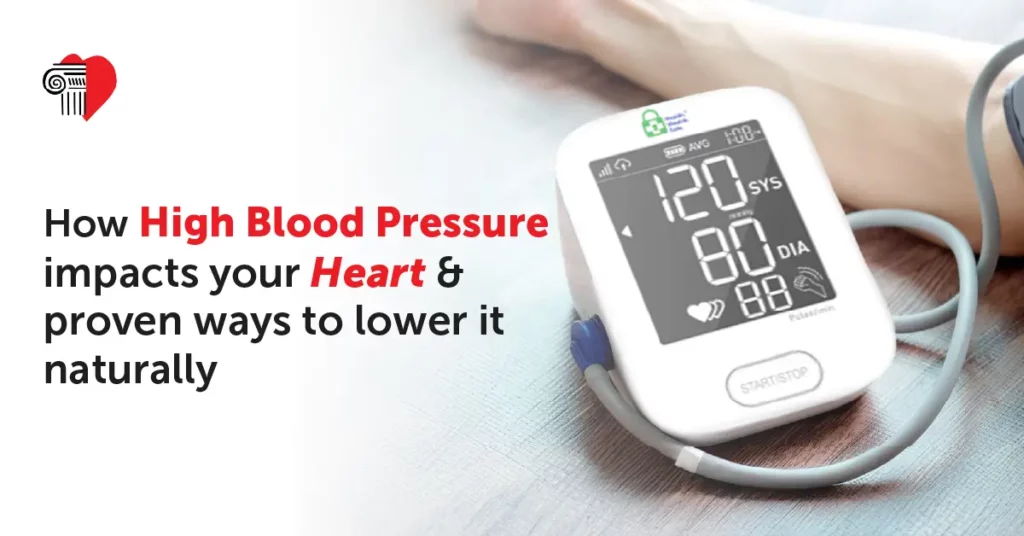
What You Need to Know About Cardiologists: Types, When to See One, and How They Help
What is a Cardiologist
A cardiologist is a specialist who understands everything about heart health—from managing blood pressure and cholesterol to diagnosing and treating conditions like heart disease. They work closely with patients to address issues like high blood pressure, heart disease, and irregular heart rhythms. Think of them as your heart’s best friend, guiding you toward a healthier lifestyle and managing risks to keep your cardiovascular system in top shape. From routine checkups to complex treatments, cardiologists are there to help you live a stronger, healthier life!
When to See a Cardiologist
1. Common Signs & Symptoms: Knowing when to see a cardiologist can make a huge difference. Cardiologists recommend that individuals experiencing symptoms like chest pain, shortness of breath, dizziness, or palpitations should seek medical attention right away. Some symptoms may seem mild or intermittent, but they can be early indicators of more serious heart conditions, such as cardiovascular disease or heart failure.
2. Risk Factors to Monitor: In addition to symptomatic concerns, people with certain risk factors should see a cardiologist for preventive care. Risk factors include a family history of heart disease, high cholesterol, hypertension, obesity, and diabetes. Cardiologists can provide guidance on managing these conditions to reduce the risk of cardiovascular events.

Types of Cardiologists and Their Specialties
The field of cardiology is highly specialized, with different types of heart doctors focusing on specific conditions or procedures. Types of heart specialists include:
- General Cardiologists: These are often the first point of contact for heart-related issues. General cardiologists diagnose and manage a wide range of heart problems, from high blood pressure to preventive care for at-risk patients. They coordinate with other specialists if the patient requires more specific treatment.
- Interventional Cardiologists: Interventional cardiologists are experts in minimally invasive procedures to treat certain cardiovascular diseases. Common procedures include placing stents, performing angioplasty, and repairing heart defects. These specialists often work in catheterization labs and are essential in treating conditions that could lead to heart attacks if left unmanaged.
- Electrophysiologists: Focused on heart rhythm disorders, electrophysiologists diagnose and treat arrhythmias—irregular heartbeats that may lead to serious complications if untreated. Their treatments often include procedures to implant pacemakers or defibrillators, as well as ablation techniques to correct the heart’s electrical pathways.
- Heart Failure Specialists: As the name suggests, these cardiologists specialize in managing patients with advanced heart failure. They provide specialized care for individuals with severe heart muscle weakness or structural issues that lead to diminished cardiac output. Treatments often include medications, lifestyle management, and, in some cases, preparing patients for heart transplants.
- Cardiovascular Surgeons: Cardiologists manage heart disease non-surgically, cardiovascular surgeons handle cases requiring open-heart surgery, such as coronary artery bypass, valve replacement, or complex congenital heart defect repairs. They work closely with cardiologists to determine the best action for patients requiring surgical interventions.
Each type of specialist brings a unique skill set to heart health management, ensuring that patients receive care tailored to their specific conditions and needs.
How Cardiologists Diagnose and Treat Heart Conditions

Diagnosing heart problems requires a combination of patient history, physical exams, and advanced testing methods. Cardiologists have various diagnostic tools at their disposal to assess the state of a patient’s cardiovascular system. Commonly used diagnostic tools for heart health:
- Electrocardiograms (EKGs): This is a non-invasive test that measures the heart’s electrical activity to detect irregularities in heart rhythm. EKGs are often one of the first tests ordered when heart disease is suspected and are critical for diagnosing arrhythmias.
- Echocardiograms: Using ultrasound technology, echocardiograms produce images of the heart’s structure and function. This test helps cardiologists assess the condition of the heart muscles and valves, which can identify issues like heart failure or structural abnormalities.
- Stress Tests: A stress test measures how the heart performs under physical exertion. It can reveal issues that may not be noticeable at rest, such as reduced blood flow to the heart or early signs of coronary artery disease. This test is helpful for patients with symptoms like chest pain and shortness of breath.
- Cardiac Catheterization: Cardiac catheterization is an invasive procedure used to diagnose and treat certain heart conditions. A thin tube is inserted through a blood vessel in the arm or leg and guided to the heart. This allows the cardiologist to see blood flow through the arteries, detect blockages, and, if necessary, place a stent to keep arteries open.
- Advanced Imaging: CT and MRI scans provide highly detailed images of the heart and surrounding blood vessels. They are particularly useful for detecting complex issues that require precision, such as abnormalities in blood vessels or unusual heart muscle conditions.
Treatment Options for Heart Conditions Once a diagnosis is made, cardiologists work with patients to create individualized treatment plans. Treatments can vary widely, depending on the severity of the condition, and may include lifestyle changes, medication, or invasive procedures. Some key aspects include:
Lifestyle Changes: Cardiologists frequently advise patients on dietary adjustments, exercise routines, and stress management techniques. These changes play a crucial role in managing conditions like high blood pressure and cholesterol.
Medications: Drugs such as beta-blockers, blood thinners, and cholesterol-lowering medications are commonly prescribed to manage heart disease and prevent complications.
Surgical Interventions: When lifestyle changes and medication are insufficient, procedures like stenting, angioplasty, or bypass surgery may be recommended to restore heart function and improve blood flow.
The Importance of Partnering with a Cardiologist
Understanding when to seek a cardiologist’s help and recognizing the range of heart specialists available can make all the difference in managing heart health. With their expertise, advanced diagnostic tools, and treatment options, cardiologists provide essential care for patients at all stages of heart disease. Regular consultations, proactive screenings, and a clear understanding of risk factors empower individuals to take control of their cardiovascular health.

Conclusion
A proactive partnership with a cardiologist is vital for managing and preventing heart disease. With the expertise and tools to diagnose and treat various heart conditions, cardiologists guide patients toward healthier lifestyles and provide tailored treatment plans to enhance cardiovascular health. Don’t wait until symptoms worsen—take control of your heart health with regular consultations and screenings.
Ready to connect with a specialized care team? Visit Athens Heart Center to explore personalized cardiovascular support options today.






Share Your Thoughts
No comments yet — be the first to comment!